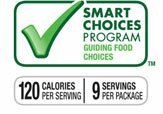Policy changes in the United States
California WIC and the saturated market
US income differentials are the widest of any industrialised country and the USA ranks 43rd lowest Infant Mortality Rate (The Spirit Level, Wilson R, Picket K, 2009 Greater equality and better health. www.bmj.com/cgi/content/full/339/nov10_2/b4320nov10_2/b4320).
The US Special Supplemental Nutrition Programme for Women Infants and Children (WIC) launched in 1974, is targeted to improve the nutrition of the poor and serves close to nine million women and children. It is the nation’s largest single purchaser of infant formula, buying 60% of all US formula. In the last decade WIC has raised breastfeeding initiation rates among low-income ethnic women, but exclusive breastfeeding and duration rates remain much lower amongst WIC mothers - indeed only 18% of WIC mothers in California are still breastfeeding after the first three months. WIC is trying to change this and from October 1st has stopped routine supply of any formula during Month One, with exclusive breastfeeding becoming the ‘default’ option and formula offered only after an individual assessment and counselling session. Mothers have a financial incentive to choose exclusive breastfeeding with a much-enhanced food package worth $62 a month for a full year, plus $38 a month for her child. Those who choose “mostly breastfeeding” receive $49 plus $21 for their child. Those who choose the formula package receive $38 (for 6 months), and $21 for infants. Early reports from the field are very positive.
- Lack of regulation in the US has resulted in a ‘mature’ (saturated) market for formula. Manufacturers increase profitability by raising prices and using health claims for ‘designer’ products, touted as “closer than ever to breast milk.” WIC is forced to pay $100m to $200m annually for ingredients which have no proven health benefits and many risks. The WIC and breastfeeding community is urging the Food and Drug Aministration and Federal Trade Commission to toughen its approach and clamp down on direct marketing and health claims, and wants Congress to hold hearings on this in 2010.
- No Maternity legislation Another problem is that no US federal law requires paid maternity leave; 24 % of the best employers provide four or fewer weeks, 52 % provide six weeks or less – especially low-wage employers. www.calwic.org/docs/federal/2009/formulamarketing.pdf
- Patti Rundall, our Policy Director, spoke at the 5th Biennial Childhood Obesity Conference in Los Angeles in June, invited by California WIC and the Strategic Alliance for Healthy Food and Activity Environments. http://preventioninstitute.org/index.html
 Governments wanting to tackle the obesity problem are wondering whether to regulate the marketing and labelling of junk foods or to trust the many industry self-regulation schemes that are springing up. In the USA, state and federal authorities have put pressure on the food industry to end its voluntary Smart Choices labelling scheme which allows a green checkmark on products that meet its very low nutritional criteria.
Governments wanting to tackle the obesity problem are wondering whether to regulate the marketing and labelling of junk foods or to trust the many industry self-regulation schemes that are springing up. In the USA, state and federal authorities have put pressure on the food industry to end its voluntary Smart Choices labelling scheme which allows a green checkmark on products that meet its very low nutritional criteria.
The industry strategy to head off regulation seems to have backfired and the Food and Drug Administration is now devising regulations for package front nutrition labeling (hopefully the much simpler Traffic Light scheme advocated by the UK Food Standards Agency). With no EU-wide regulation on marketing of junk foods to children, EU-based food companies have devised a weak voluntary scheme - the EU Pledge - also with low criteria and many loopholes.
One way to raise funds for health programmes is through taxation of alcohol or junk foods. In the US a 1penny per ounce tax on sodas would raise about $150 bn and save health costs of at least $50 bn over a decade. The Thai Sin Tax on alcohol and tobacco already raises $100m per year for ThaiHealth Promotion. See Page 14 and: http://articles.latimes.com/2009/oct/06/opinion/oe-brownell6 and http://en.thaihealth.or.th
The California SIDS Advisory Council has unanimously recommended that the California Department of Public Health include breastfeeding as a SIDS Risk Reduction recommendation.






